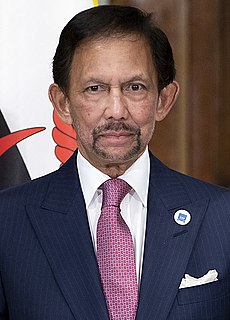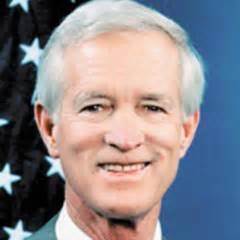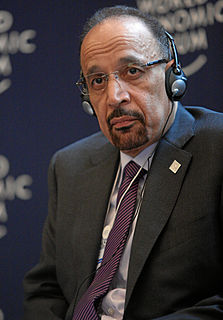A Quote by Stephen Harper
We want to see oil and gas regulations on a continental basis given the integrated nature of this industry, with the current conditions in the oil and gas sector, this government will not consider unilateral regulation.
Related Quotes
First, the oil and gas business pays its fair share of taxes. Despite the current debate on energy taxes, few businesses pay more in taxes than oil and gas companies. The worldwide effective tax rate for our industry in 2010 was 40 percent. That's higher than the U.S. statutory rate of 35 percent and the rate for manufacturers of 26.5 percent.
They [leaders in Western Europe] do not misuse financial instruments, financial injections, but, first of all, seek structural change. This is urgent for our economy as well, maybe even more urgent bearing in mind the problem that we cannot yet deal with, namely the prevalence of the oil and gas sector in the Russian Federation and, as a result, dependence on revenue from oil and gas.
My heart breaks living in southern Utah on the edge of America's Redrock Wilderness, witnessing what the Bush Administration's policies regarding oil and gas exploitation are doing to our public lands that belong to all Americans. Their policy is not about the public or the public's best interest. It is about the oil and gas corporations' best interests. The Secretary of the Interior is urging the Bureau of Land Management to support the gas and oil industry's most extreme drilling scenario in some of the American West's most pristine and fragile areas without proper legal and public input.
Venezuela has the biggest oil reserves in the world. And the biggest gas reserves in this hemisphere, the eighth in the world. Venezuela was a U.S. oil colony. All of our oil was going up to the north, and the gas was being used by the U.S. and not by us. Now we are diversifying. Our oil is helping the poor.
Then there is another area of activity - economic interaction between Russia and the United States. Right now, for example, it has already been made public that we signed a large deal to privatise one of our biggest oil and gas companies, Rosneft. We know for sure that US companies, as well as Japanese ones, by the way, are keenly interested in cooperation in Russia's oil and gas sector, in joint work. This has immense significance for world energy markets and will directly affect the whole world economy.
The development of oil and gas resources depends more on capital than labour, and exporting oil and gas neither generates maximum returns from these precious resources nor creates large numbers of jobs within the local economy. As a result, the benefits are typically not shared broadly across society.
What is the most entrepreneurial country in the Middle East today? It's Lebanon. Which country has no oil or gas? Lebanon. The same was true of Israel, the same was of Bahrain. You could see a real gradation. Turkey, for instance: no oil and gas, very entrepreneurial. You can either dig your future out of the ground or you can unlock the potential of your people.
































